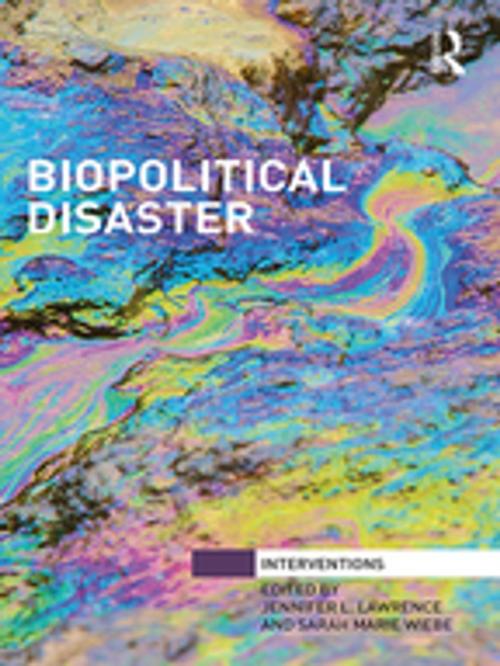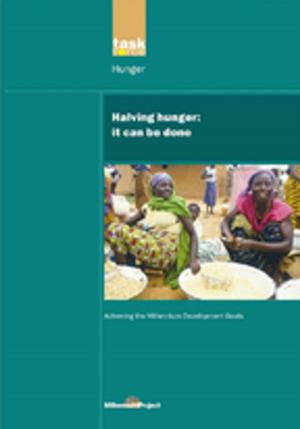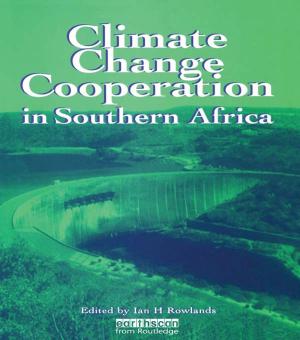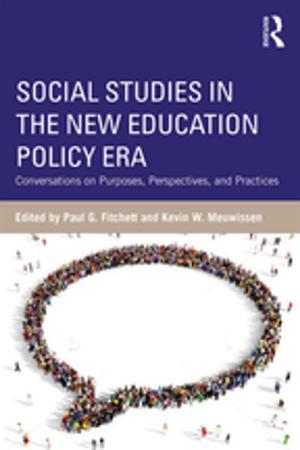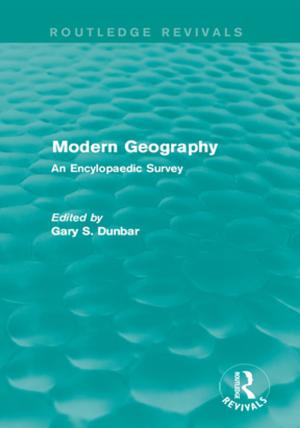Biopolitical Disaster
Nonfiction, Social & Cultural Studies, Political Science, Government, Social Policy, International, International Relations| Author: | ISBN: | 9781317216292 | |
| Publisher: | Taylor and Francis | Publication: | July 14, 2017 |
| Imprint: | Routledge | Language: | English |
| Author: | |
| ISBN: | 9781317216292 |
| Publisher: | Taylor and Francis |
| Publication: | July 14, 2017 |
| Imprint: | Routledge |
| Language: | English |
Biopolitical Disaster employs a grounded analysis of the production and lived-experience of biopolitical life in order to illustrate how disaster production and response are intimately interconnected. The book is organized into four parts, each revealing how socio-environmental consequences of instrumentalist environmentalities produce disastrous settings and political experiences that are evident in our contemporary world.
Beginning with "Commodifying crisis," the volume focuses on the inherent production of disaster that is bound to the crisis tendency of capitalism. The second part, "Governmentalities of disaster," addresses material and discursive questions of governance, the role of the state, as well as questions of democracy. This part explores the linkage between problematic environmental rationalities and policies. Third, the volume considers how and where the (de)valuation of life itself takes shape within the theme of "Affected bodies," and investigates the corporeal impacts of disastrous biopolitics. The final part, "Environmental aesthetics and resistance," fuses concepts from affect theory, feminist studies, post-positivism, and contemporary political theory to identify sites and practices of political resistance to biopower.
Biopolitical Disaster will be of great interest to postgraduates, researchers, and academic scholars working in Political ecology; Geopolitics; Feminist critique; Intersectionality; Environmental politics; Science and technology studies; Disaster studies; Political theory; Indigenous studies; Aesthetics; and Resistance.
Biopolitical Disaster employs a grounded analysis of the production and lived-experience of biopolitical life in order to illustrate how disaster production and response are intimately interconnected. The book is organized into four parts, each revealing how socio-environmental consequences of instrumentalist environmentalities produce disastrous settings and political experiences that are evident in our contemporary world.
Beginning with "Commodifying crisis," the volume focuses on the inherent production of disaster that is bound to the crisis tendency of capitalism. The second part, "Governmentalities of disaster," addresses material and discursive questions of governance, the role of the state, as well as questions of democracy. This part explores the linkage between problematic environmental rationalities and policies. Third, the volume considers how and where the (de)valuation of life itself takes shape within the theme of "Affected bodies," and investigates the corporeal impacts of disastrous biopolitics. The final part, "Environmental aesthetics and resistance," fuses concepts from affect theory, feminist studies, post-positivism, and contemporary political theory to identify sites and practices of political resistance to biopower.
Biopolitical Disaster will be of great interest to postgraduates, researchers, and academic scholars working in Political ecology; Geopolitics; Feminist critique; Intersectionality; Environmental politics; Science and technology studies; Disaster studies; Political theory; Indigenous studies; Aesthetics; and Resistance.
